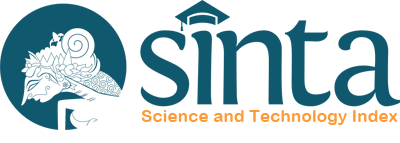Correlation of Knowledge Level of COVID-19 Vaccine Hoaxes with Community Attitudes to the Vaccination Program in Samarinda
Abstract
Introduction: The COVID-19 pandemic problem was followed by the development of an infodemic supported by advance technologies. This development has an impact on how quickly information spreads throughout society. Different types of COVID-19 information are very accessible to the public. However, some of the information received by the public contained hoaxes. The purpose of this research is to know the correlation between the level of knowledge COVID-19 vaccine hoax and people’s attitudes toward the vaccination program.
Methods: This research was conducted online in Samarinda using a cross-sectional research design with voluntary response sampling. The minimal sample was 147 respondents, which was distributed through social media. This research using Spearman Rank correlation test, Mann-Whitney test, and Kruskal-Wallis test with 95% level of confidence.
Result: The results showed there was a significant correlation between people’s attitudes about the vaccination program and their level of knowledge COVID-19 vaccine hoax (p less than 0,001). Furthermore, it was discovered that people who were greater than 35 years old (p = 0.011), had a recent education history at college (p less than 0.001), and were married (p = 0.001) were disagree with the COVID-19 vaccination program. There was no significant differences on gender (p = 0.076) and a positive history of COVID-19 (p = 0.702).
Conclusion: There is a significant correlation between the level of knowledge COVID-19 vaccine hoax and people’s attitudes toward the vaccination program.
Downloads
 Viewer: 472 times
Viewer: 472 times
 PDF (Bahasa Indonesia) downloaded: 569 times
PDF (Bahasa Indonesia) downloaded: 569 times











